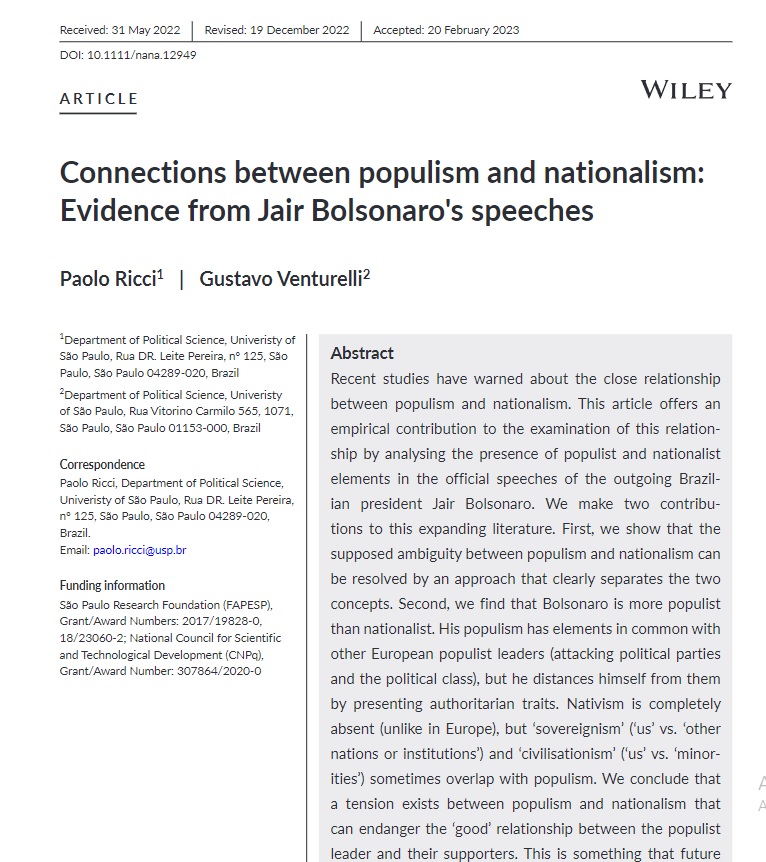
Paolo Ricci e Gustavo Venturelli
Abstract
Recent studies have warned about the close relationship between populism and nationalism. This article offers an empirical contribution to the examination of this relationship by analysing the presence of populist and nationalist elements in the official speeches of the outgoing Brazilian president Jair Bolsonaro. We make two contributions to this expanding literature. First, we show that the supposed ambiguity between populism and nationalism can be resolved by an approach that clearly separates the two concepts. Second, we find that Bolsonaro is more populist than nationalist. His populism has elements in common with other European populist leaders (attacking political parties and the political class), but he distances himself from them by presenting authoritarian traits. Nativism is completely absent (unlike in Europe), but ‘sovereignism’ (‘us’ vs. ‘other nations or institutions’) and ‘civilisationism’ (‘us’ vs. ‘minorities’) sometimes overlap with populism. We conclude that a tension exists between populism and nationalism that can endanger the ‘good’ relationship between the populist leader and their supporters. This is something that future research on populism should consider.


